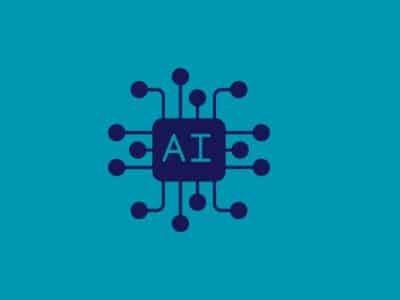Artificial Intelligence (AI) is transforming the finance industry in unprecedented ways, ushering in a new era of innovation and efficiency. With the ability to process vast amounts of data and automate complex tasks, AI is changing how financial institutions operate, making them faster and more accurate. In this article, we’ll explore the evolution of AI in finance, the key technologies transforming the industry, the benefits of AI integration, and the challenges and concerns that come with this transformative technology.
The Evolution of Artificial Intelligence in Finance
Early applications of AI in finance date back to the 1980s when banks started using expert systems to automate credit decisions. These early systems were limited in capabilities and primarily used for back-office operations, such as fraud detection and credit risk analysis. However, they paved the way for more advanced AI technologies to revolutionize the finance industry.
Since then, AI has evolved to include advanced machine learning algorithms that can analyze vast amounts of data, deep learning neural networks that can recognize patterns, and natural language processing (NLP) that can automate customer service. These advancements have enabled financial institutions to automate complex tasks and improve decision-making processes.
Early Applications of AI in Finance
As AI technologies improved, their applications expanded into retail banking, insurance, and investment. One of the earliest applications of AI in finance was in the area of credit decisions. Banks used expert systems to automate evaluating loan applications, reducing the time it took to make a decision and improving accuracy.
Another early application of AI in finance was fraud detection. Financial institutions use AI algorithms to analyze transactions and identify patterns that could indicate fraudulent activity. This helped to reduce losses due to fraud and improve the security of financial systems.
The Rise of Machine Learning and Big Data
Machine learning is a key driver of AI in finance, enabling algorithms to learn from data and improve over time. With the rise of big data, machine learning algorithms can analyze vast amounts of data to identify patterns and make predictions, enabling financial institutions to make better decisions.
Machine learning is now used extensively in financial applications, such as fraud detection, credit scoring, and investment analysis. For example, credit scoring algorithms use machine learning to analyze credit history and other data to determine the risk of lending money to a particular individual or organization.
At the intersection of artificial intelligence (AI) and finance, a new era is dawning with the advent of Quantum AI. Quantum AI revolutionizes the way financial systems operate by combining the power of quantum computing with AI algorithms. Its unparalleled computational capabilities enable more accurate predictions, enhanced risk management, and optimized decision-making in the complex world of finance. Quantum AI unlocks hidden insights and navigates through vast amounts of data, paving the way for transformative advancements and shaping the finance industry’s future.
Current AI-driven Financial Innovations
AI has transformed the finance industry, including robo-advisors, algorithmic trading, chatbots, and customer service automation. Robo-advisors use AI algorithms to provide automated investment advice, while algorithmic trading uses complex algorithms to execute trades automatically.
Chatbots and customer service automation use AI to provide personalized customer service, improving customer satisfaction. NLP algorithms enable chatbots to understand and respond to customer inquiries naturally and intuitively, reducing the need for human customer service representatives.
Overall, the evolution of AI in finance has enabled financial institutions to automate complex tasks, improve decision-making processes, and provide better customer service. As AI technologies advance, we expect to see even more innovations in the finance industry.
Key AI Technologies Transforming the Financial Industry
Several key AI technologies are transforming the financial industry, enabling financial institutions to automate complex tasks and improve decision-making.
Robo-Advisors and Automated Investment Platforms
Robo-advisors are intelligent investment platforms that use AI algorithms to provide automated investment advice. They have become popular among millennials and other tech-savvy consumers looking for affordable and convenient investment solutions.
Algorithmic Trading and High-Frequency Trading
Algorithmic trading uses complex algorithms to execute trades automatically based on pre-defined rules. High-frequency trading is a subset of algorithmic trading that uses high-speed networks and advanced algorithms to execute microsecond trades. These technologies have revolutionized trading, making it more efficient and profitable.
Fraud Detection and Risk Management
AI is increasingly used for fraud detection and risk management, enabling financial institutions to identify suspicious transactions, detect anomalies, and mitigate risk. Machine learning algorithms can analyze vast amounts of data to identify patterns and predict potential fraud.
Chatbots and Customer Service Automation
Chatbots and customer service automation use AI to provide personalized customer service, improving customer satisfaction and reducing costs. They can answer questions, provide advice, and troubleshoot problems, all without human intervention.
The Benefits of AI Integration in Finance
AI integration benefits the finance industry, enabling financial institutions to operate more efficiently, make better decisions, and provide personalized services to customers.
Improved Efficiency and Cost Reduction
AI can automate complex tasks, reducing the need for human intervention and improving efficiency. It can also reduce operational costs by automating routine tasks like data entry and customer service.
Enhanced Decision-Making and Risk Assessment
AI algorithms can analyze vast amounts of data, enabling financial institutions to make better decisions and manage risk more effectively. They can also provide real-time insights, enabling financial institutions to respond quickly to changing market conditions.
Personalized Financial Services
AI can provide personalized financial services, such as investment advice and product recommendations, based on individual customer data. This improves customer satisfaction and loyalty and can lead to increased revenue.
Increased Security and Fraud Prevention
AI can help financial institutions detect fraud and other security threats, mitigating risk and protecting customers. Machine learning algorithms can analyze vast amounts of data to identify patterns and predict potential fraud, enabling financial institutions to take action before any damage is done.
Challenges and Concerns in AI-Driven Finance
While the benefits of AI in finance are many, some challenges and concerns come with this transformative technology.
Data Privacy and Security Issues
As financial institutions collect and analyze more customer data, there are concerns about privacy and security. AI algorithms must be designed to protect sensitive data and ensure compliance with data protection laws.
Ethical Considerations and Bias in AI Algorithms
AI algorithms must be designed with ethical considerations to avoid bias and ensure fairness. There are concerns that biased algorithms could result in discrimination and unfair treatment of certain groups.
Regulatory and Compliance Challenges
The use of AI in finance raises regulatory and compliance challenges, including compliance with anti-money laundering (AML) and know-your-customer (KYC) regulations. Financial institutions must ensure that their AI systems comply with these regulations and that they are transparent in their use of algorithms.
The Impact on Employment and the Workforce
As AI reduces the need for human intervention in routine tasks, there are concerns about the impact on employment and the workforce. Financial institutions must ensure that their AI systems are designed to augment human capabilities rather than replace them and that they provide opportunities for retraining and upskilling.
Conclusion
The intersection of AI and finance has the potential to transform the industry in many ways, from improved efficiency and cost reduction to enhanced decision-making and personalized services. While some challenges and concerns come with this transformative technology, financial institutions must embrace AI and use it to overcome these challenges and provide better services to customers. The future of finance is AI-driven, and those who fail to assume this technology risk being left behind.















Comments